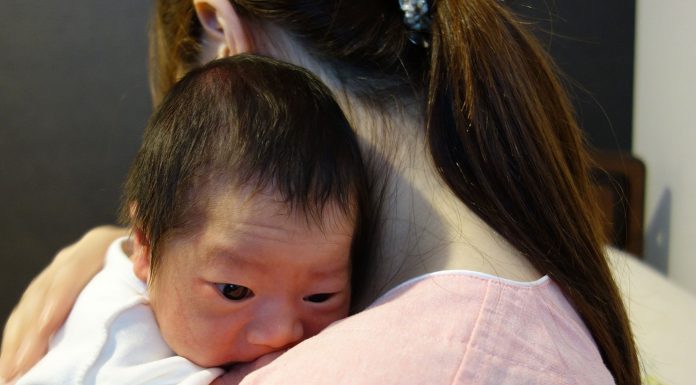CLINICAL BOTTOM LINE
Earplugs may be useful as part of a multifaceted, sleep-promoting bundle to reduce delirium in critically ill patients
in ICU.
CLINICAL SCENARIO
Sleep disruption amongst critically ill patients in intensive care units (ICU) is one of many factors associated with the development of delirium. You wonder if noise-cancelling earplugs may be a simple solution and decide to review the evidence.
QUESTION
In critically ill patients, do earplugs reduce the incidence of delirium in comparison with standard care?
SEARCH STRATEGY
PubMed- Clinical Queries (Therapy/Broad): earplugs AND delirium.
CITATION
Litton E, Carnegie V, Elliott R & Webb S. The Efficacy of Earplugs as a Sleep Hygiene Strategy for Reducing Delirium in the ICU: A Systematic Review and Meta-Analysis. Crit Care Med 44: 992-9, 2016.
STUDY SUMMARY
A systematic review to assess the efficacy of earplugs as a strategy for reducing delirium in the intensive care unit. Inclusion criteria were:
Type of study: Randomised control trials (RCT) or non-randomised control trials. Excluded were crossover studies, those published in abstract form and studies involving healthy volunteers.
Participants: Patients in ICU.
Intervention: Earplugs compared with standard care.
OUTCOMES
Primary outcomes: Delirium, how defined was not specified.
Secondary outcomes: ICU and hospital length of stay, ICU and hospital mortality, validated sleep survey questionnaire responses, total sleep time and efficiency measured by polysomnography or actigraphy, compliance with a policy of earplug placement, and cost-effectiveness.
STUDY VALIDITY
Search strategy: Electronic databases searched to locate studies were MEDLINE, EMBASE, and the Cochrane Central Register of Controlled Trials (CENTRAL) from 1966 to July 2015. No language restrictions were applied. Reference lists of all the included studies as well as relevant review articles were examined.
Review process: Two authors independently searched for potentially relevant studies, extracted data using a standardised form, and author(s) conducted risk of bias assessment. Disagreements were resolved by group consensus.
Quality assessment: Cochrane collaboration tool criteria (sequence generation, allocation concealment, blinding of participants/outcome assessment, incomplete outcome data, selective outcome reporting, and other potential sources of bias) were used to assess and report risk of bias for randomised and non-randomised studies. Assessment specific to non-randomised intervention studies conducted but not reported.
Overall validity: A good-quality review involving a small number of generally small studies with high risk of bias.
STUDY RESULTS
After removing 717 duplicates, 1,042 titles/abstracts were screened, from which 48 full text studies were assessed for eligibility. Nine studies examining the effectiveness of earplugs for outcomes of interest were included in the review.
Five studies (832 participants) reported incident (hospital onset) delirium. Of these, earplugs were studied as an isolated intervention in one single centre RCT (136 participants); other studies were RCTs and/or non-randomised studies investigating earplugs as one component of a multifaceted, sleep-promoting bundle. Earplug use (alone or as part of a multifaceted intervention) was associated with a statistically significant reduction in incident delirium compared with standard care. There was no substantial heterogeneity between the studies.
The results were not substantially different when comparing effectiveness of earplugs alone to earplugs as part of a sleep-promoting bundle (earplugs, eye shades, soothing music, environmental stimulus reduction, melatonin) (refer Table). Earplug use was not associated with significant differences in hospital mortality compared with standard care. Subjective sleep quality and total sleep time were not assessed in pooled analysis.
Table: Summary of results
| Outcome | Number of studies (number of participants) | Risk ratio (95%) Confidence Interval (CI)) | Statistical
heterogeneity I2 |
| Delirium | 5 (832) | 0.59 (0.44 – 0.78) | 39% |
| Delirium – earplugs only* | 1 (136) | 0.58 (0.40 – 0.85) | Not applicable |
| Delirium – sleep-promoting bundle | 4 (696) | 0.56 (0.35 – 0.90) | Not stated |
* Data from NEECHAM delirium scale ‘mild confusion’ category Ref: Van Rompaey et al [ 1].
COMMENTS:
- The two largest studies (including ≥300 patients each) were non-randomised and all studies were at high risk of bias. Just one small RCT examined the effect of earplugs alone [1]. In this RCT, mild confusion was found to decrease with earplug use but not the incidence of delirium (19 per cent delirium with ear plugs and 20 per cent with standard care).
- Non-compliance with earplugs was generally low (13.1 per cent, 95 per cent CI 7.8 per cent to 25.4 per cent) but related to intolerance of earplugs, earplugs falling out, or the intervention being abandoned due to clinical need.
- Delirium in ICU settings arises from multiple factors, one of which may be sleep disruption from environmental sound. Clear evidence that earplugs improved sleep quality was lacking.
- Overall, there is insufficient evidence to recommend earplugs as an isolated strategy for preventing delirium. However, earplugs as part of a sleep promoting bundle of strategies appear useful and are cheap, simple to use and generally well tolerated.
Reviewer: Cynthia Wensley RN, MHSc. Honorary Professional Teaching Fellow, University of Auckland and PhD Candidate, Deakin University, Melbourne [email protected]
REFERENCE
Van Rompaey B, Elseviers MM, Van Drom W, et al.(2012) The effect of earplugs during the night on the onset of delirium and sleep perception: A randomised controlled trial in intensive care patients. Crit Care 2012; 16:R73






















